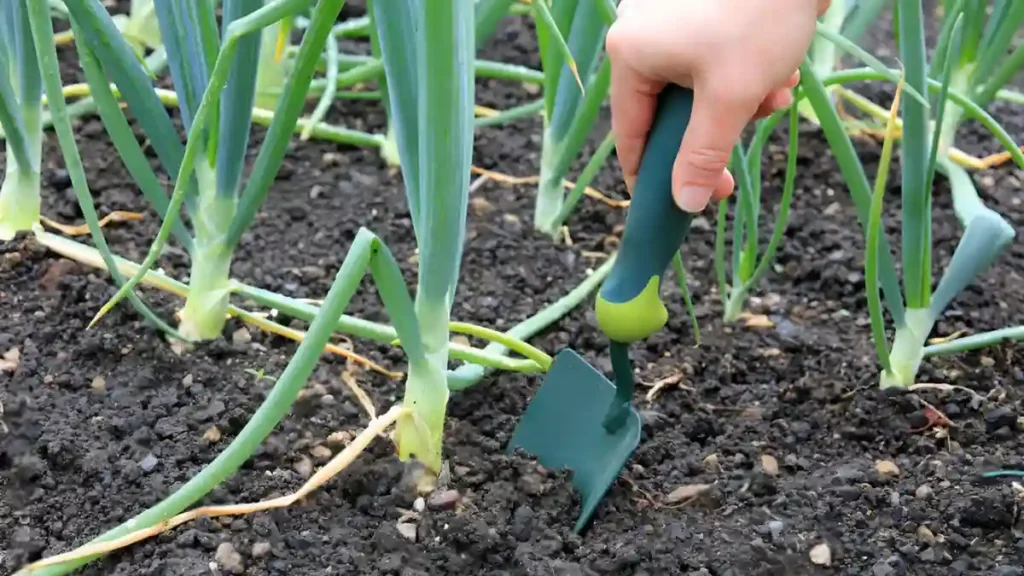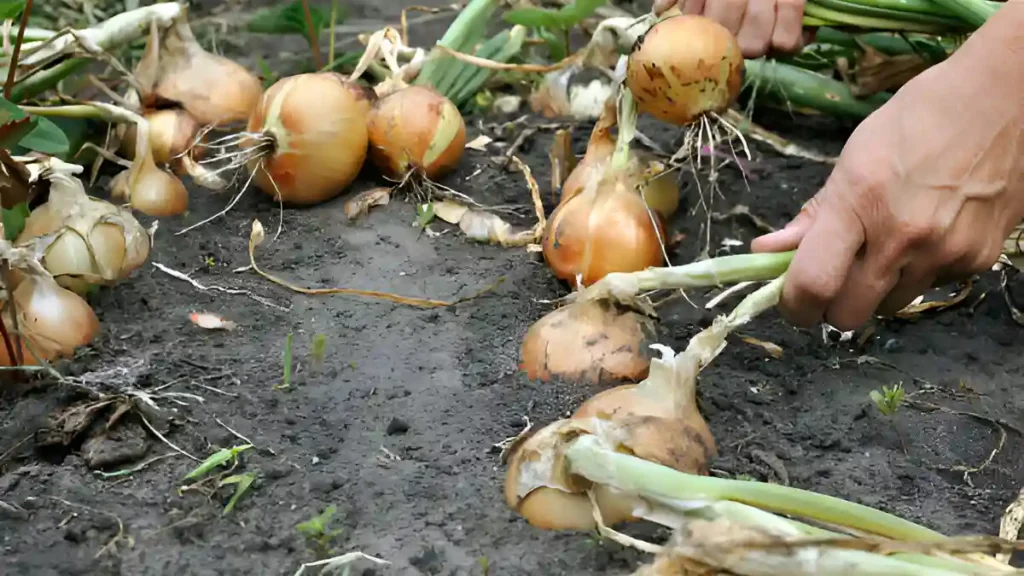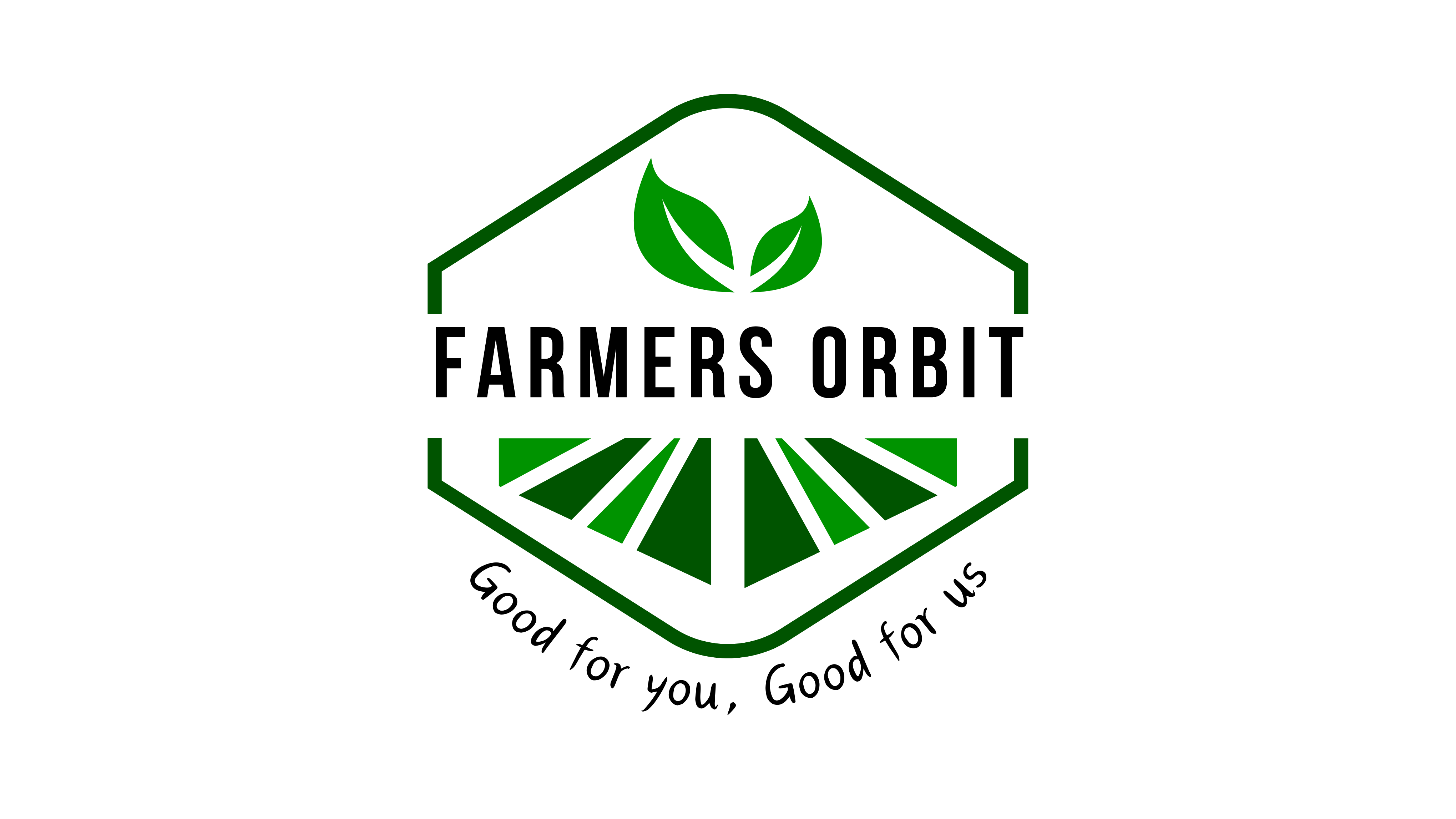Thanks to their unique flavor and ability to be used in various cuisines, onions are a common ingredient in kitchens worldwide. It can be a satisfying experience to grow your onions because you can harvest flavorful, fresh bulbs straight from your garden. Regardless of your level of gardening experience, this article will take you through the easy steps to grow a bumper crop of onions. You can find all the information you need to guarantee a plentiful harvest, from selecting the ideal type to planting, tending to, and harvesting your onions. Let’s explore the fundamentals of how to grow onions
How do onions grow in a garden?
Garlic and chives are linked to onions (Allium cepa), which belong to the Allium family. Onions grow in what way?
I find onions to be fascinating. They essentially grow in layers that are an extension of the onion’s leaves. Therefore, there are more layers of crunchy onion behind an onion that you can see emerging from the top. You are growing some quite large onions if you notice a lot of leaves.
Here are some simple steps: How to grow onions
- Three primary varieties of onions are day-neutral, long-day, and short-day. Ideal for areas in the south with moderate winters. perfect for areas in the north with lengthy summer days. Most places can use it because it is less sensitive to the duration of the day.
- Onions like their soil to be healthy, and well-draining, with a pH between 6.0 and 7.0. clearing away trash and weeds. Compost or well-rotted manure can be added to increase fertility. ensuring appropriate drainage to avoid flooding.
- Eight to ten weeks before the latest frost date, begin inside. When seedlings are 3–4 inches tall, transplant them outside. Plant straight in the garden one to two weeks ahead of the final anticipated date of frost. Acquire from a nursery and sow following the final frost.
- Plant seeds in rows spaced 12–18 inches apart, 1/4 inch deep. Plant rows 12–18 inches apart in sets that are 1 inch deep and spaced 4-6 inches apart. Place plants in rows 12–18 inches apart, spacing them 4-6 inches apart.

Onion care for proper growth
1. Hydrating:
Onions do not like soggy soil; they need constant moisture. Once a week, give the soil a thorough watering to keep it equally hydrated. When onions get older, water them less to avoid rot.
2. The process of fertilization:
Frequent feeding is beneficial for onions. To encourage bulb development, use a fertilizer that is heavy in phosphorus or one that is balanced. During the planting season and every few weeks thereafter, fertilizer should be applied.
3. Mulching:
To control soil temperature, inhibit weed growth, and conserve moisture, mulch the area surrounding your onion plants. Mulch made from straw, grass clippings, or compost is effective.
4. Diseases and pests:
Keep an eye out for typical onion pests such as aphids, thrips, and onion maggots. If necessary, apply the proper chemical or organic controls. By maintaining adequate air circulation and avoiding overhead watering, you can prevent infections.
5. Harvesting onions from garden:
When the onion tops turn yellow and fall off, harvest them. After removing the dirt from surrounding the bulbs, carefully lift them out. Let onions cure for two to three weeks in a well-ventilated, warm, and dry place before keeping.
6. How to store onions:
Onions should be kept dry, cold, and well-ventilated when being stored. With the right storage, they can last for several months.

Conclusion:
How to grow onions is a simple operation that, with the right preparation and attention, may provide an abundant harvest. These easy techniques will help you harvest an abundance of onions from your garden. Happy expanding!
Certainly! If you’d like to learn more, please consider following our WhatsApp Channel: Harvest Gardening
A frequently asked questions:
Q1. How to plant onions from seed?
A1. If starting from seed, sow onions inside in trays with seed-starter mix at least six weeks and up to twelve weeks ahead of time for outdoor planting. The tray should be exposed to artificial grow lights for ten to twelve hours per day.
Q2. How to grow onions in pots?
A2. Onions can grow well in containers if the soil in your yard is too compacted or if the lighting isn’t ideal. Select a container that is about one foot deep. Provided that each onion has around 6 inches of room on both sides, you can plant more than one onion in a container.
Q3. Are onions easy to grow?
A3. Though most gardeners can grow onions with a little experience, they are thought to be tough to grow. Assets typically have a high success rate, try developing from them first.
Q4. How to grow onions from seeds?
A4. Choose an area that receives at least six to seven hours of sunlight each day. Set the onion seeds 2 inches deep and 4 inches apart if you want them to grow big. The onions will have plenty of space to grow as a result.
Q5. Can dogs eat onions?
A5. No, onions are harmful to dogs and can lead to major health problems, therefore they shouldn’t consume them.




1 Comment
Pingback: How to grow green onions without soil - quick and eco-friendly!